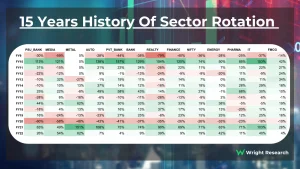
Investing in Exchange Traded Funds (ETFs) can diversify a portfolio and gain exposure to various assets. Particularly for Singaporean investors, choosing the right platform to trade ETFs is as crucial as selecting the suitable ETF. This article compares several ETF trading platforms available to Singaporean investors, shedding light on their features, fees, and services.
Investors in Singapore can make informed decisions that align with their investment goals and preferences by examining key factors such as user interface, trading options, research tools, customer support, and security measures.
Whether you are a seasoned investor and trader or just starting, clearly understanding Singapore’s available ETF trading platforms can significantly enhance your investment journey. Let’s delve into the details and explore the various options to help you make the best choice for your investment needs.
Introduction to ETF trading platforms in Singapore
Singapore, as a significant financial hub, has a robust market for ETFs. With the increasing demand for ETF trading, several platforms have emerged, offering different services and features to cater to the various needs of Asian investors. These platforms can be broadly categorised into traditional brokerages and digital investment platforms.
Traditional brokerages
Traditional brokerages offer various investment options, including stocks, bonds, mutual funds, and ETFs. They typically have a physical office; investors can access their services through a designated broker or phone. An ETF broker in Singapore offers research, trading, and investment advisory services.
Digital investment platforms
Digital investment platforms operate online, providing an easy-to-use interface for investors in Singapore to buy and sell securities, including ETFs. They usually have lower fees and provide access to a wide selection of ETFs from global markets. Some popular digital investment platforms in Singapore are FSMOne, Tiger Brokers, and Saxo Markets.
Comparing ETF trading platforms
Here, we compare the key features of different ETF trading platforms available to Singaporean investors.
User interface
The user interface plays a vital part in navigating an ETF trading platform. A well-designed interface makes all the difference for an investor, particularly for beginners. Traditional brokerages usually have a more comprehensive and customisable user interface, whereas digital investment platforms are more user-friendly and straightforward.
Trading options
Trading options refer to the orders investors can place on a platform. Traditional brokerages provide more advanced trading options, such as limit orders, stop-loss orders, and market orders. On the other hand, digital investment platforms typically offer basic trading options like market orders. However, some digital platforms are expanding their offering to include more advanced trading options.
Research tools
Research tools are essential for investors to make informed decisions. Traditional brokerages often provide extensive research and analysis reports, market news, and economic data to assist investors in decision-making. Digital investment platforms usually have limited research tools but may offer some basic market information and news updates.
Customer support
Good customer support is critical for any investment platform. Traditional brokerages usually have dedicated customer service teams and offer support through multiple channels, such as phone, email, or in-person meetings. Digital investment platforms typically provide customer support through online chat or email.
Security measures
Security is critical when it comes to investing. Traditional brokerages are generally more secure as they usually have strict regulatory oversight and follow industry standards for data protection. Digital investment platforms also have security measures, such as encryption and two-factor authentication, but may have a different level of regulatory oversight.
Fees comparison
Fees are critical for investors to consider when selecting an ETF trading platform. It is vital to carefully evaluate the fees charged by different platforms to make an informed decision.
Traditional brokerages typically have higher fees, including trading commissions and account maintenance fees. The exact amount may vary depending on the specific services the broker provides. It is essential to assess the value of these services against the associated costs.
On the other hand, digital investment platforms generally offer lower fees because of their online-only operations. However, it is worth noting that some digital platforms may have hidden fees for specific services or transactions. These additional fees may include charges for professional advice, access to advanced trading tools, or certain types of transactions.
By considering the fees and the services provided by different ETF trading platforms, investors can choose the platform that best aligns with their investment and trading goals and preferences.
Wrapping up
Choosing the right ETF trading platform in Singapore is crucial for investors to achieve their investment goals effectively. Traditional brokerages offer a comprehensive range of services and research tools but come at a higher cost. On the other hand, digital investment platforms provide ease of use and lower fees but may have limited trading options and research tools.
Investors in Singapore should evaluate their investment goals, risk tolerance, and preferences to select which platform best suits their needs. Additionally, it is advisable to regularly review and reassess the chosen platform to ensure it aligns with any changes in investment goals or market conditions. With the availability of various ETF trading platforms, Singaporean investors have an opportunity to diversify their portfolios and achieve their financial objectives efficiently.







